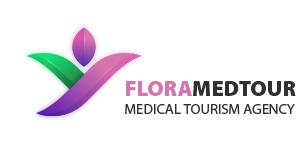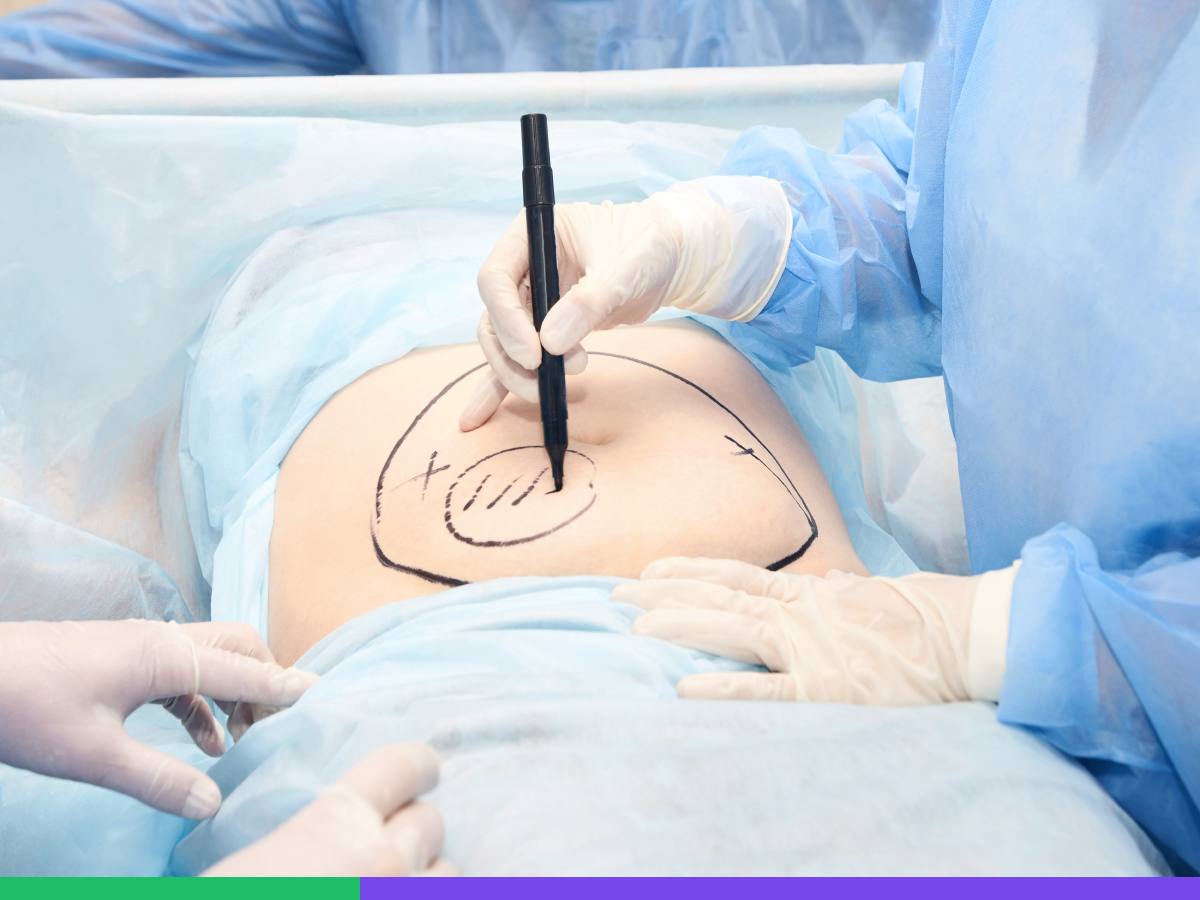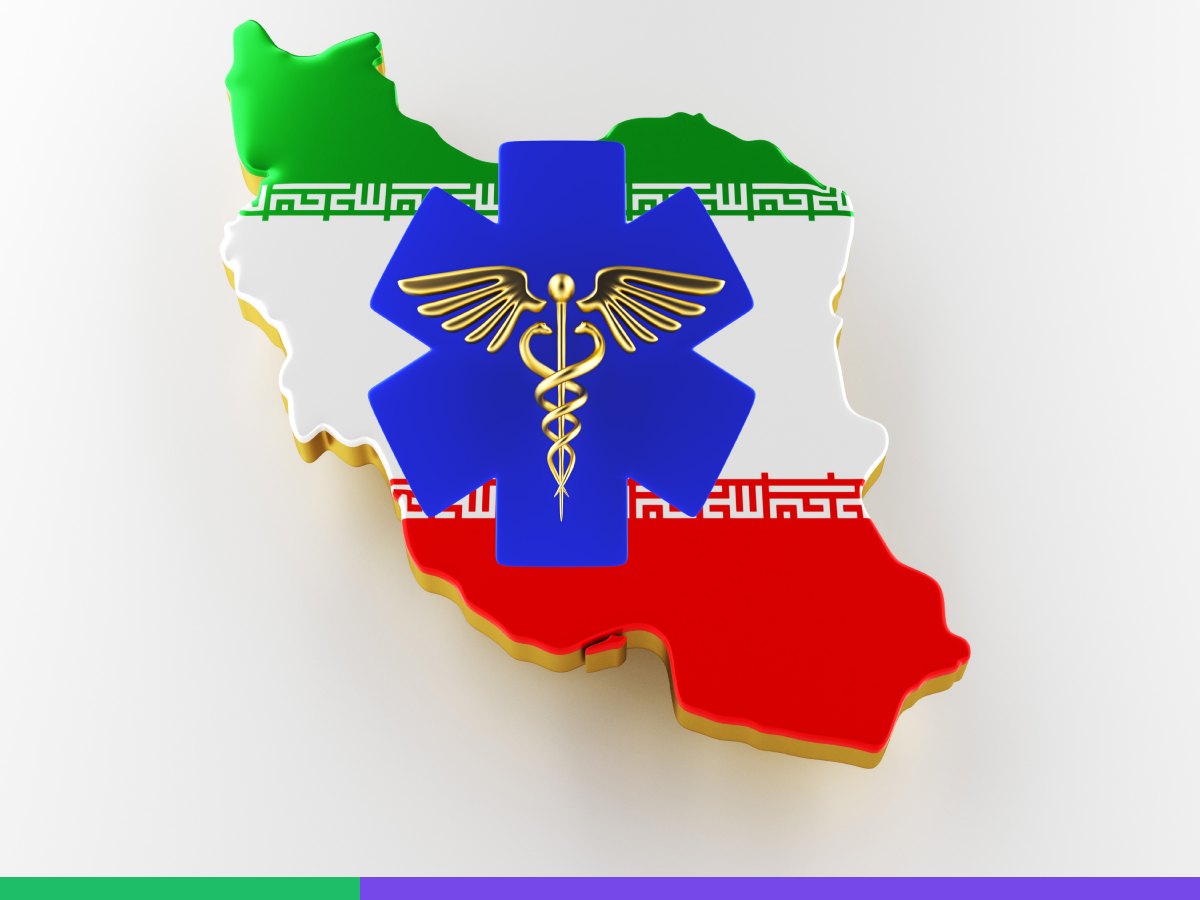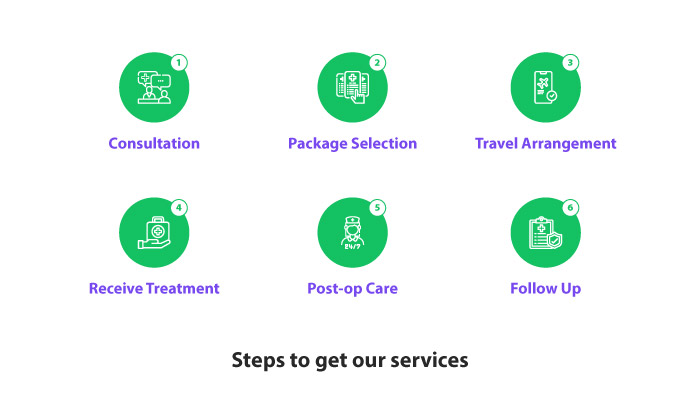Including These Services for Free
Medical tests
Post-operative care
Visa and Travel insurance
Interpreter
Food for all days
Medical consultation
Airport Pick up/Drop off
SIM card
Shopping
Sightseeing Tours
Medicine
Follow up
VIP Transfer
Internet

Flora medical tourism facilitator offers IUI Packages all across Iran(Tehran, Mashhad, Kish island, Shiraz, Tabriz, Esfahan, Yazd, Ahvaz, Sari…), for any budget.
7 Night Accommodation in Iran




Flora medical tourism facilitator only has partnerships with the best hotels.
We will reserve accommodation for you at up to 40% lower price than anywhere else.
ALL INCLUSIVE IUI PACKAGE IN IRAN from $2,500
What is IUI?
Intrauterine insemination (IUI) is a simple and non-invasive fertility treatment that involves placing sperm directly into the uterus using a small catheter. This procedure helps the sperm bypass the cervix, increasing the chances of fertilization and ultimately, pregnancy. IUI is recommended for couples with mild male factor infertility, unexplained infertility, or when other treatments have not been successful. In this package, you will learn about the benefits of undergoing IUI treatment in Iran and why it could be the perfect choice for you.
IUI Step by Step
1.Consultation of IUI in Iran
Before undergoing the Intrauterine Insemination (IUI) procedure in Iran with Floramedtour, clients will have an in-depth consultation with a fertility specialist. During this stage, the specialist will evaluate the patient’s medical history, perform necessary tests, and discuss the likelihood of success for the procedure. The consultation aims to ensure the IUI procedure is the right option for the patient and to address any concerns they may have.
2.The IUI Procedure
The IUI procedure generally involves placing specially washed sperm directly into the uterus to increase the chances of conception. However, for a successful pregnancy one cycle might not be enough. Depending on individual circumstances and factors such as age, fertility issues, and overall health, specialists recommend trying up to 3-6 cycles. One cycle of IUI usually takes around 28 days to complete and typically consists of the following steps:
- Ovulation Monitoring: The woman’s ovulation cycle is carefully monitored daily for several days or weeks. This process begins on day 10 or 11 through blood tests and ultrasound to identify the. the time of ovulation, which typically occurs around day 14.
- Sperm Collection and Preparation: The male partner provides a sperm sample, which is then washed and concentrated for approximately 1-2 hours to select the best quality sperm for insemination. The sperm collection usually takes place on the day of the IUI procedure, although it may also be collected earlier and frozen for later use.
- Insemination: A small catheter is used to insert the prepared sperm directly into the uterus, increasing the chances of fertilization. This is usually performed within 6 hours after the sperm collection and preparation and the process takes no more than a few minutes.
- Pregnancy Test: A pregnancy test is conducted approximately two weeks after the IUI procedure to determine if the treatment has been successful.
3.IUI Recovery
After the IUI procedure, patients can expect a brief recovery period. During the first week, it is essential to follow specific guidelines to maximize the chances of a successful outcome:
- Rest for the first 24 hours after the procedure
- Maintain a healthy diet and stay hydrated
- Engage in light physical activities, such as walking, to promote blood circulation
- Take any prescribed medications as directed by the fertility specialist
- Avoid strenuous activities that may strain the pelvic area during the first week
- Refrain from sexual intercourse for a few days, as advised by the specialist
- Avoid hot baths or saunas, as high temperatures may negatively affect fertility
- Do not consume alcohol or smoke during the two-week period between the IUI procedure and the pregnancy test
4.IUI Follow-up
Floramedtour is committed to providing its clients with comprehensive follow-up services for two years after the IUI procedure. During this period, you will have ongoing communication with specialists to ensure a successful outcome and fruitful results. The recovery process will be closely monitored, and any concerns will be promptly addressed. After the first week, you should still continue to follow these guidelines:
- Maintain a healthy lifestyle, including diet and exercise
- Try to eat fruits such as bananas, apples, pears, kiwi, and avocados. These can provide essential nutrients and antioxidants to the body
- Include whole grains lean proteins healthy fats and plenty of vegetables into your diet
- Stay well-hydrated and get plenty of water
- Keep track of your menstrual cycle and report any irregularities
- Engage in activities that may cause stress or anxiety, as emotional wellbeing plays a role in fertility
- In case of a successful pregnancy, the female partner should avoid drinking or smoking during the whole pregnancy period
Find your Breast Augmentation day by day Schedule in this Article
Why Choose Iran for IUI Treatment?
Iran has become a popular destination for fertility treatments due to its many advantages, including:
- Affordable Prices compared to other countries, which makes Iran an attractive option for couples on a budget.
- Getting treated by well-trained and experienced doctors and specialists in the field of reproductive medicine, ensuring high-quality care and treatment.
- Offering Specialized Clinics and Centers equipped with advanced technology for fertility treatments, including IUI.
- High Success Rate for IUI treatment, giving hope to couples struggling with infertility.
- Iranian fertility clinics provide a Comprehensive range of services, from initial consultations and testing to post-treatment care and support.
- Visiting Cultural and Historical Attractions in Iran
How much IUI costs?
The cost of IUI (Intrauterine Insemination) procedures varies globally due to factors such as location, clinic or hospital fees, medication costs, and additional services. In the USA, the average price for IUI ranges from $800 to $4,000 per cycle, while in the UK, it costs approximately £500 to £2,000 (roughly $660 to $2,600) per cycle. In Europe, the price varies depending on the country, with IUI costs ranging from €500 to €2,500 (around $560 to $2,800) per cycle. In contrast, Iran offers more affordable IUI treatments with an average cost of around $250-$600 per cycle, without compromising the quality of services. Floramedtour, a leading medical tourism provider in Iran, offers all-inclusive IUI packages from $2,500, making it an incredibly affordable choice for couples seeking fertility treatments.
Who Is/Isn’t a Good Candidate for IUI?
IUI can be an effective fertility treatment for some couples. However, it might not be the ideal choice for all candidates due to various factors. The following list highlights who might be suitable or unsuitable for IUI treatment:
Who might be good candidates:
- Unexplained infertility: IUI helps when the cause of infertility is unknown.
- Mild male factor infertility: IUI places healthy sperm closer to the egg.
- Cervical mucus problems: IUI bypasses hostile cervical mucus.
- Cervical scarring/anatomical issues: IUI enables sperm to bypass obstacles.
- Sexual dysfunction: IUI offers an alternative method of conception.
- Donor sperm: IUI is a common method for using donor sperm.
- Ovulation issues: If a woman has irregular ovulation or does not ovulate at all, IUI can be combined with fertility medications to stimulate ovulation and increase the chances of conception.
Who might not be good IUI candidates:
- Severe male factor infertility: In vitro fertilization (IVF) with intracytoplasmic sperm injection (ICSI) may be more effective.
- Blocked or damaged fallopian tubes: IVF can bypass the need for functional fallopian tubes.
- Advanced maternal age (typically over 40): IVF with or without preimplantation genetic testing (PGT) may offer better success rates.
- Moderate to severe endometriosis: IVF can be a better option.
- Poor ovarian reserve or low egg quality: IVF with donor eggs may be the solution.
How to prepare for IUI?
A good preparation is necessary to have a high chance of a successful fertility treatment. By adopting specific lifestyle changes and following certain guidelines, clients can improve their likelihood of achieving a healthy pregnancy. Meanwhile, make sure that you follow the below instructions during your preparation:
- Maintain a healthy diet: Consume a balanced diet rich in fruits, vegetables, whole grains, lean proteins, and healthy fats.
- Manage stress: Engage in stress-reducing activities such as yoga, meditation, or mindfulness practices.
- Maintain a healthy weight: Aim to achieve a BMI within the recommended range for optimal fertility.
- Exercise moderately: Engage in regular, moderate-intensity exercise to improve overall health and well-being.
- Stop smoking: Refrain from smoking at least two to three months before starting the IUI treatment.
- Limit alcohol consumption: Reduce or eliminate alcohol consumption several weeks before IUI to promote a healthy reproductive environment.
- Take prenatal vitamins: Begin taking prenatal vitamins containing folic acid to support a healthy pregnancy.
- Monitor ovulation: Track your ovulation using ovulation predictor kits or fertility apps to help time the IUI procedure accurately.
IUI Success Rate and Failure
The success rate of IUI (Intrauterine Insemination) procedures can be influenced by various factors. These include age, ovarian reserve, sperm quality and count, the cause of infertility, timing of the IUI, and the use of fertility medications. Generally, the average IUI success rate per cycle is around 10-20% for women under 35 years, 10-15% for women aged 35-40 years, and 5% or lower for women over 40 years. Note that it is quite possible that you have to try IUI for more than one time to gain successful results. Generally, doctors may recommend trying IUI 3-6 times before considering other fertility treatments. Here you can find the main factors that can lead into IUI failure:
- Poor sperm quality or low sperm count
- Low ovarian reserve or poor egg quality
- Blocked or damaged fallopian tubes
- Severe endometriosis
- Incorrect timing of the IUI procedure
- Unmanaged underlying medical conditions
IUI Babies characters
Generally, IUI babies are as natural and healthy as naturally-conceived babies. In fact, IUI procedure only increases the chance of fertility and has almost no effect on babies. The following list mentions the main similarities in characteristics of IUI babies compared with naturally conceived ones:
- IUI Babies charactersGenerally, IUI babies are as natural and healthy as naturally-conceived babies. In fact, IUI procedure only increases the chance of fertility and has almost no effect on babies. The following list mentions the main similarities in characteristics of IUI babies compared with naturally conceived ones:
- Health: IUI babies are typically as healthy as naturally-conceived babies.
- Size: IUI babies are not generally bigger than naturally-conceived babies. In fact, IUI does not affect baby size at all.
- Miscarriage: The risk of miscarriage in IUI is similar to natural conception, which is estimated to be around 10-20%.
- Sex selection: It is technically possible to use sperm sorting to choose the desired gender of your baby.
IUI Risks and Complications
While IUI is generally safe and less invasive compared to other fertility treatments, there are some risks and differences that might be associated with IUI including:
- Spotting: Some women might experience light spotting, which could be due to the procedure itself or early pregnancy.
- Reaction to fertility drugs: Medications used during IUI might lead into reactions such as mood swings, hot flashes, and in rare cases, severe ovarian hyperstimulation syndrome (OHSS).
- Discomfort or pain: Some women may experience minor discomfort or pain during or after the procedure, similar to menstrual cramping.
- Emotional stress: Since fertility treatments can be time-consuming and costly, they may lead into additional stress.
- Ectopic pregnancy: This occurs when the fertilized egg implants outside the uterus, most commonly in the fallopian tube. This is serious condition and therefore requires immediate medical attention.
- Multiple pregnancies: IUI can increase the chances of having twins, triplets, etc.
- Infection: There is a slight risk of infection associated with the IUI procedure. However, this can be minimized by fully cleaning the cervix before the procedure.
- Bleeding or cramping
What are IUI pregnancy symptoms?
After undergoing an IUI (Intrauterine Insemination) procedure, it is common for patients to be curious about early pregnancy symptoms. IUI pregnancy symptoms are generally similar to those experienced in a natural conception. Some common IUI pregnancy symptoms include:
- Missed period: The most obvious sign of pregnancy is a missed menstrual period.
- Breast tenderness: Hormonal changes can cause breasts to feel tender, sore, or swollen.
- Fatigue: An increase in the hormone progesterone can cause feelings of tiredness and exhaustion.
- Nausea: Morning sickness or nausea can begin as early as a few weeks into pregnancy.
- Frequent urination: Hormonal changes during pregnancy can cause an increased need to urinate.
- Mild cramping or spotting: Implantation of the fertilized egg into the uterine lining can cause mild cramping or light spotting
IUI Risks and Complications
While IUI is generally safe and less invasive compared to other fertility treatments, there are some risks and differences that might be associated with IUI including:
- Spotting: Some women might experience light spotting, which could be due to the procedure itself or early pregnancy.
- Reaction to fertility drugs: Medications used during IUI might lead into reactions such as mood swings, hot flashes, and in rare cases, severe ovarian hyperstimulation syndrome (OHSS).
- Discomfort or pain: Some women may experience minor discomfort or pain during or after the procedure, similar to menstrual cramping.
- Emotional stress: Since fertility treatments can be time-consuming and costly, they may lead into additional stress.
- Ectopic pregnancy: This occurs when the fertilized egg implants outside the uterus, most commonly in the fallopian tube. This is serious condition and therefore requires immediate medical attention.
- Multiple pregnancies: IUI can increase the chances of having twins, triplets, etc.
- Infection: There is a slight risk of infection associated with the IUI procedure. However, this can be minimized by fully cleaning the cervix before the procedure.
- Bleeding or cramping
How Can I get My IUI Arranged with FLORA Medical Tourism Agency in Iran?
Medical Facilitators are a huge help with arranging travel details. Flora medical tourism facilitator is a necessary means to ensure that you get the best care for your health issues in Iran. First you should send a request. Our consultant will contact you and guide you through all the process. When you decide to have a trip to Iran and IUI arranged, FLORA medical tourism agency will arrange all the necessary clinical, travel and hospitality services.
FREQUENTLY ASKED QUESTIONS ABOUT IVF
Are IUI procedures painful?
IUI can be mildly uncomfortable but is generally not painful.
Can IUI be performed at home?
IUI should only be performed by a professional in a medical center.
Can IUI vials be used for IVF?
Yes, IUI vials can potentially be used for IVF with proper preparation.
Can IUI work with low sperm count?
IUI can work with low sperm count, but success rates may be lower.
Can IUI prevent Down syndrome?
If one partner carries a gene associated with Down syndrome, IUI itself cannot prevent Down syndrome. However, using donor sperm or eggs from a healthy individual can help reduce the risk.
Can IUI work with low ovarian reserve?
IUI may work for low ovarian reserve but with lower success rates; IVF with donor eggs might be a better option.
Can IUI cause UTI?
There is a very small chance that IUI can cause UTI; proper sterile techniques and antibiotic prophylaxis can minimize the risk.
Can IUI work with no fallopian tubes?
IUI cannot work with no fallopian tubes; IVF is necessary in such cases.
Which one is better, IUI or IVF?
The choice between IUI and IVF depends on individual circumstances, fertility issues, and budget. For a full comparison of IUI with IVF, you can refer to our package on IVF procedure.
Which one is cheaper, IUI or IVF?
IUI is generally less expensive than IVF but may have lower success rates depending on the situation.
Who does the IUI procedure?
A fertility specialist or a trained healthcare provider performs the IUI procedure.
Will IUI work for blocked tubes?
IUI is not effective for blocked tubes; IVF is necessary in such situations.
Will IUI work with endometriosis?
IUI can work with mild endometriosis, but success rates may be lower; IVF is often recommended for moderate to severe cases.
What is Uterine Septum and can IUI treat it?
Uterine septum is a type of congenital uterine anomaly in which the uterus of the woman involves a wall or “septum” of tissue which divides the uterus into two sections. For some women, this can lead into problems during pregnancy and delivery. To resolve this issue, a surgical procedure (called hysteroscopic septum resection), is recommended and Insemination (IUI) is not a typical solution for this issue.












